- By Region
- Central Coast
- Central Valley
- Desert
- North Coast
- Northeast
- SF Bay Area
- Sierra Foothills
- Southern California
- Tahoe Basin
- By Type
- Trees
- Aquatic Plants
- More Info Don't Plant a Pest Home
Invasive Aquatic Plants in All Regions
-
Eichhornia crassipes (water hyacinth)
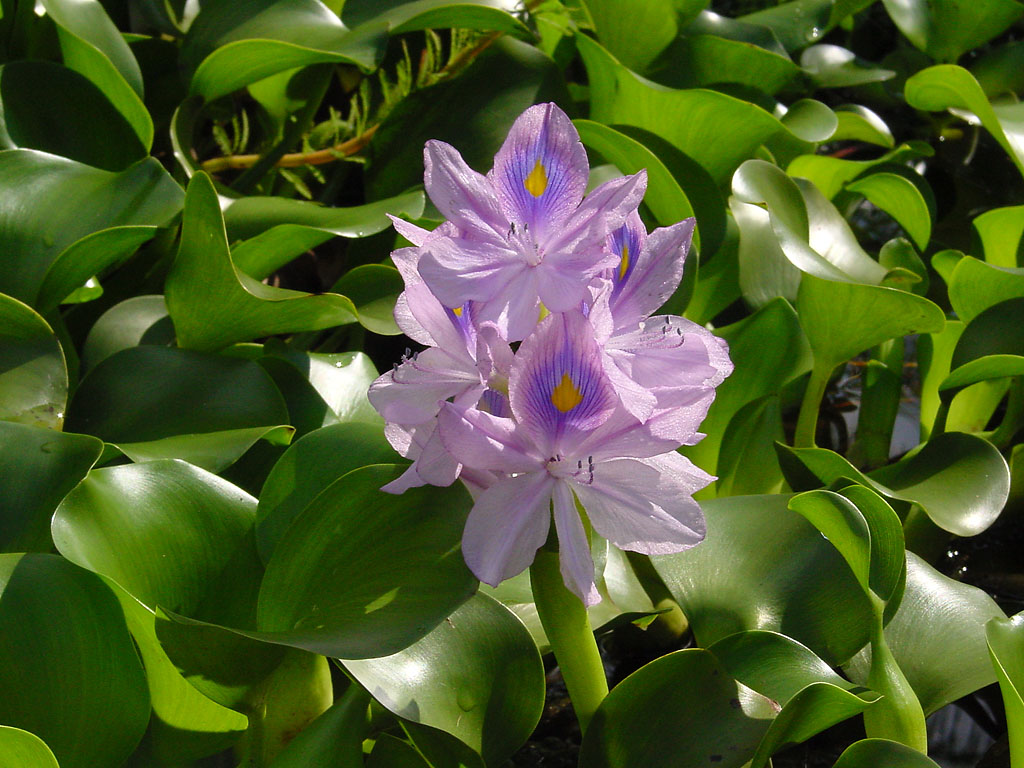
Eichhornia crassipes Eichhornia crassipes water hyacinthReputed to be the fastest-growing plant in the world! Can double in size in a week during hot weather. Forms dense mats that impede water flow. Seeds can live 15-20 years. The State of California has spent $45 million over 15 years to control water hyacinth in the Sacramento-San Joaquin Delta.
Invasive: Do Not Plant -
Hydrilla verticillata (water thyme)
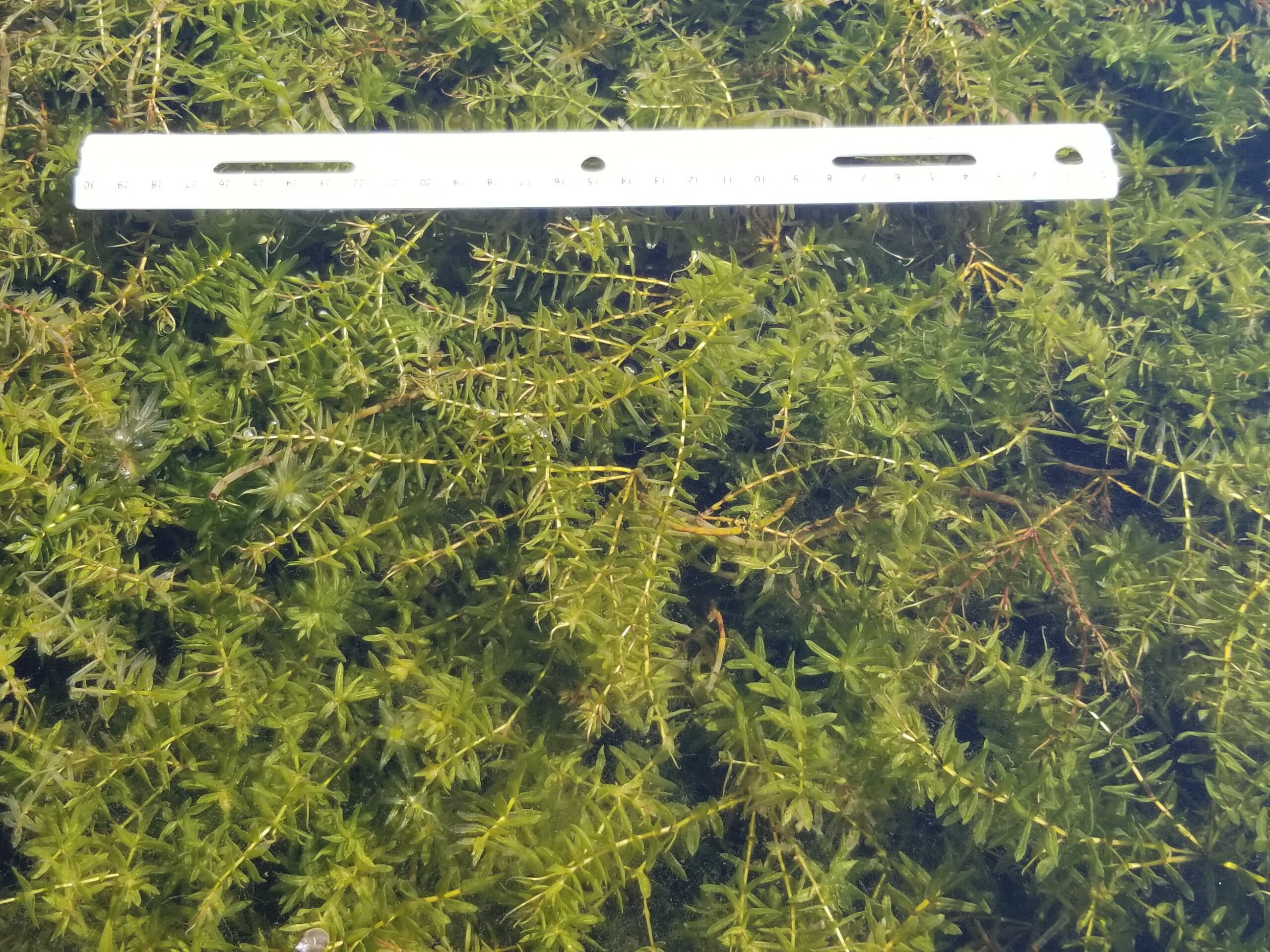
Hydrilla verticillata Hydrilla verticillata Hydrilla; water thyme; Florida ElodeaIllegal to sell or possess in California. Has arrived in California mixed with shipments of water lilies and as a mislabeled aquatic plant. Fragments quickly start new colonies.
Invasive: Do Not Plant -
Lythrum salicaria (purple loosestrife)
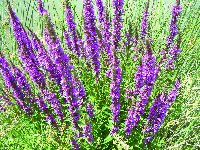
Lythrum salicaria Lythrum salicaria purple loosestrifeInvades streambanks and wetlands throughout the U.S. Persists year to year from root buds and from the root crown. Although not commonly sold in California, this plant is available for purchase on the internet. One plant can produce 2.7 million seeds. Has the potential to infest rice fields.
Invasive: Do Not Plant -
Ludwigia (waterprimrose)
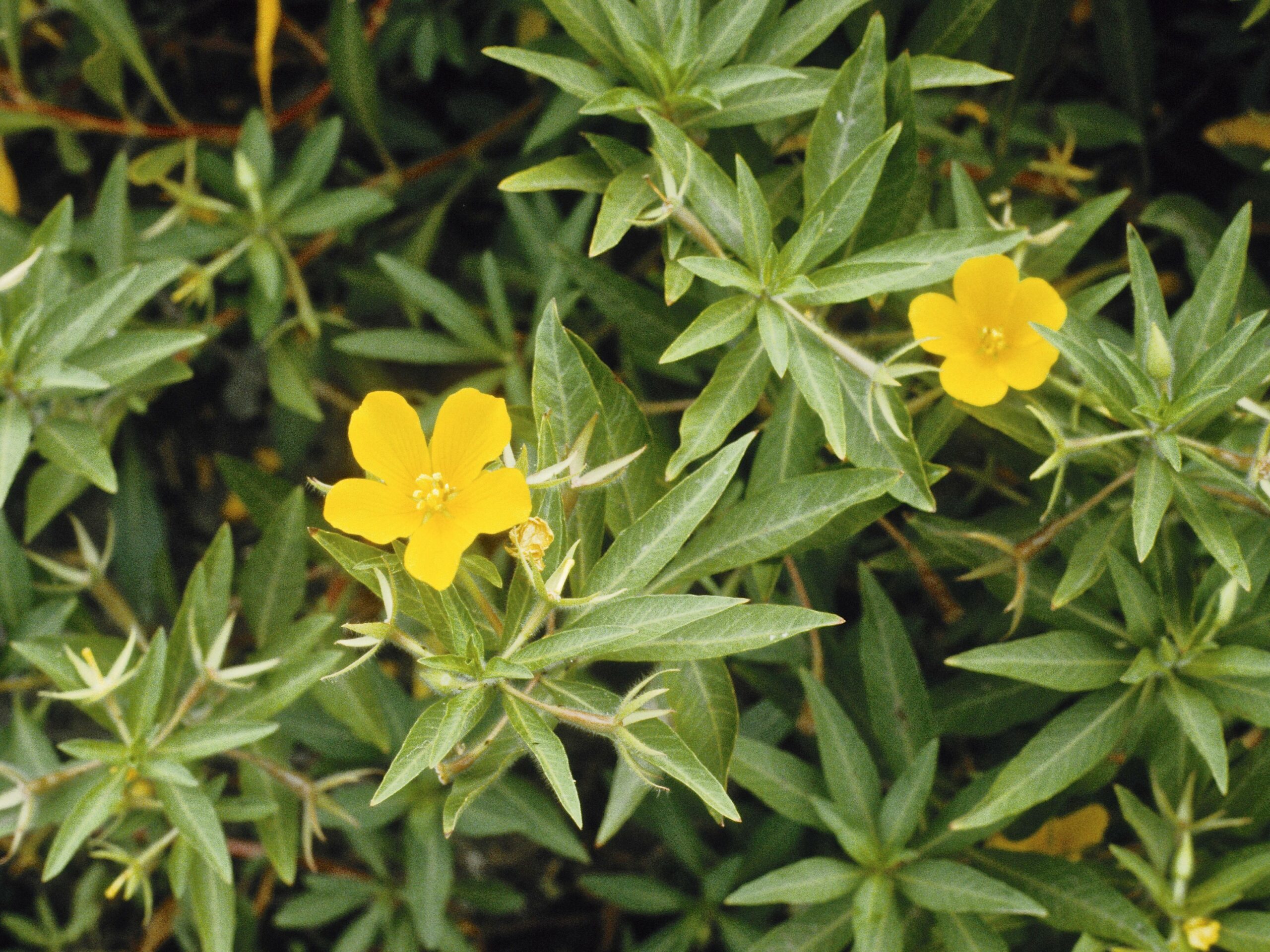
Ludwigia hexapetala Ludwigia hexapetala creeping waterprimrose; Uruguay waterprimrose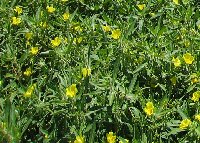
Ludwigia peploides Ludwigia peploides floating water primrose; California waterprimroseCrowds out native plants and reduces water quality. Dense mats slow water movement and create habitat for mosquito larva, which can carry West Nile virus. Although there are native Ludwigia, do not collect them from the wild.
Invasive: Do Not Plant -
Iris pseudacorus (yellowflag iris)
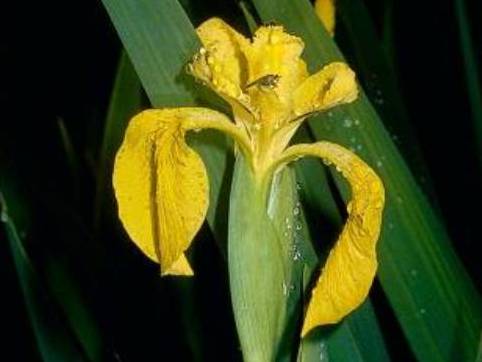
Iris pseudacorus Iris pseudacorus yellowflag Iris; pale yellow IrisForms colonies along streambanks. Listed as a noxious weed in Nevada, Expanding in the Pacific Northwest. Uncommon in California, but causes serious problems in other regions with similar climates.
Invasive: Do Not Plant -
Salvinia molesta (giant salvinia)
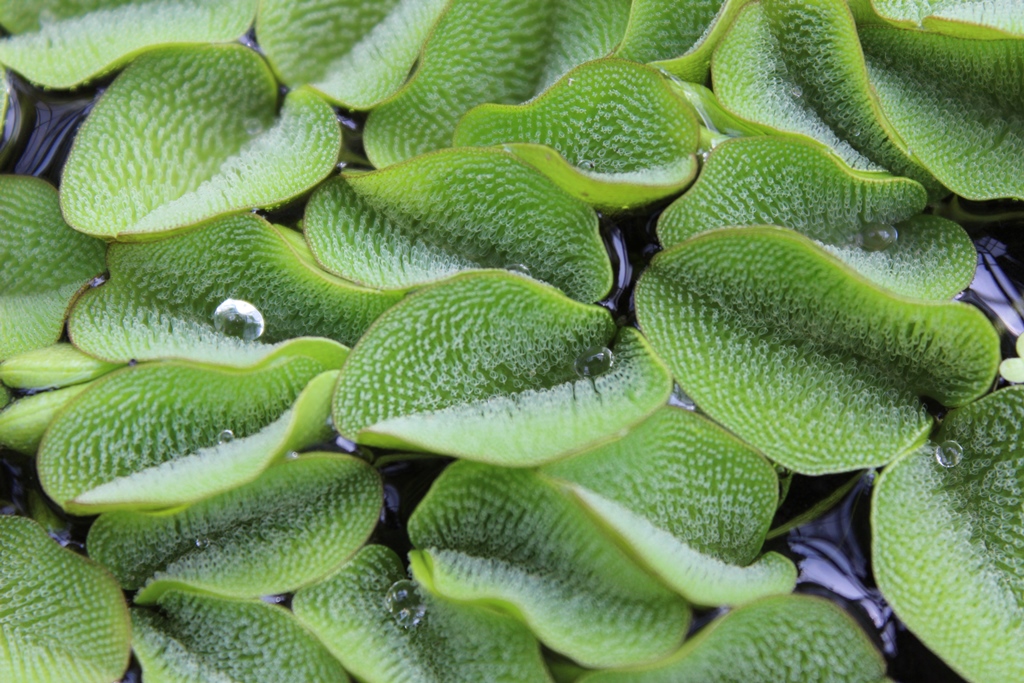
Salvinia molesta Salvinia molesta giant Salvinia; karibaweed; water velvet; African pyle; aquarium watermoss; water fern; koi kandyIllegal to sell in the US. Floating mats up to 3 ft. thick reduce light and dissolved oxygen in the water so that few living things can survive. Common salvinia (Salvinia minima) may be sold, but species are difficult to tell apart.
Invasive: Do Not Plant -
Egeria densa
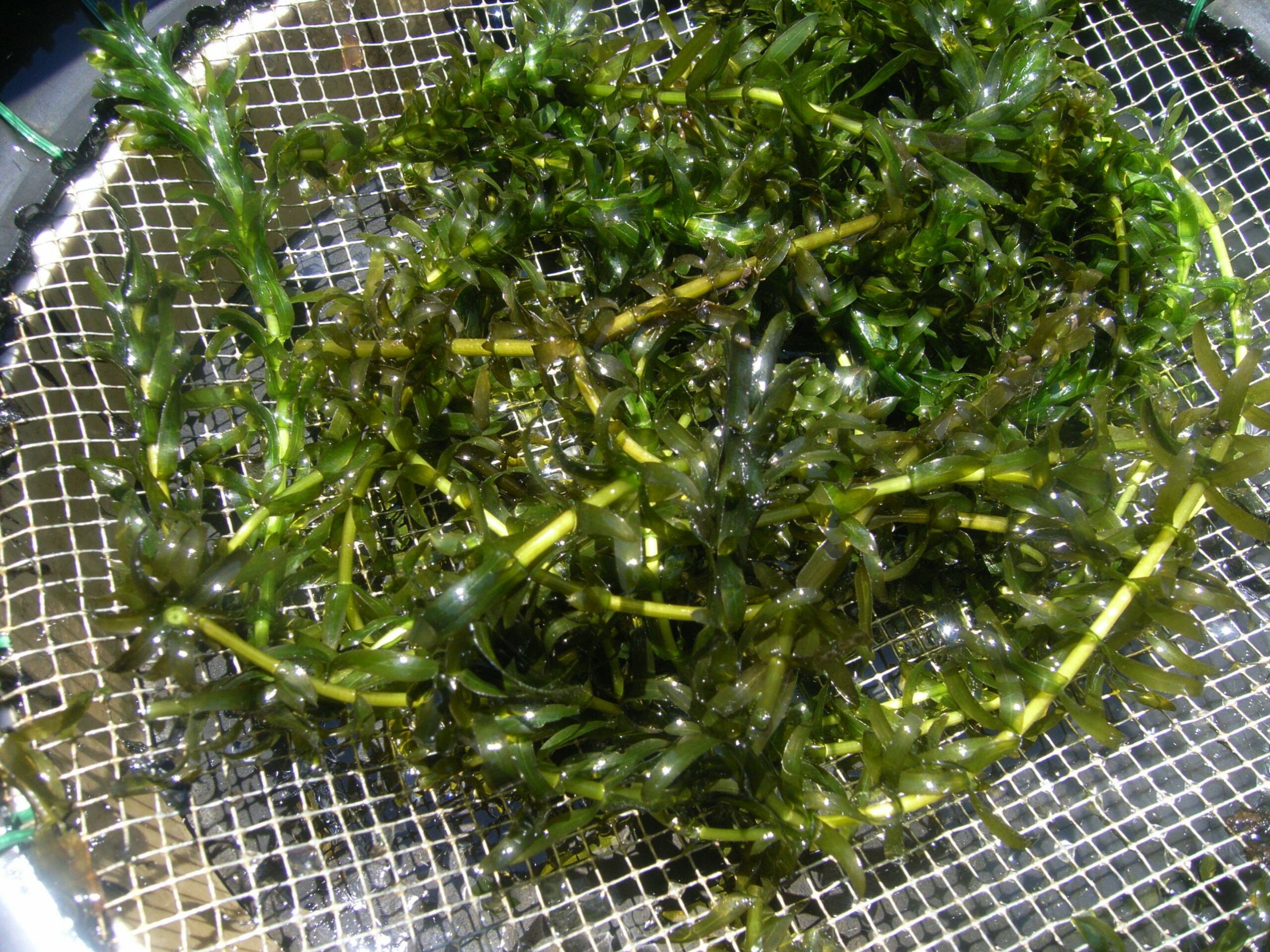
Egeria densa Egeria densa Brazilian Egeria; EgeriaInfests 7000 acres in the Sacramento-San Joaquin Delta. Aggressively invades natural waterways, displacing native aquatic plants and forming dense mats that impede water flow.
Invasive: Do Not Plant -
Myriophyllum spicatum (spike watermilfoil)
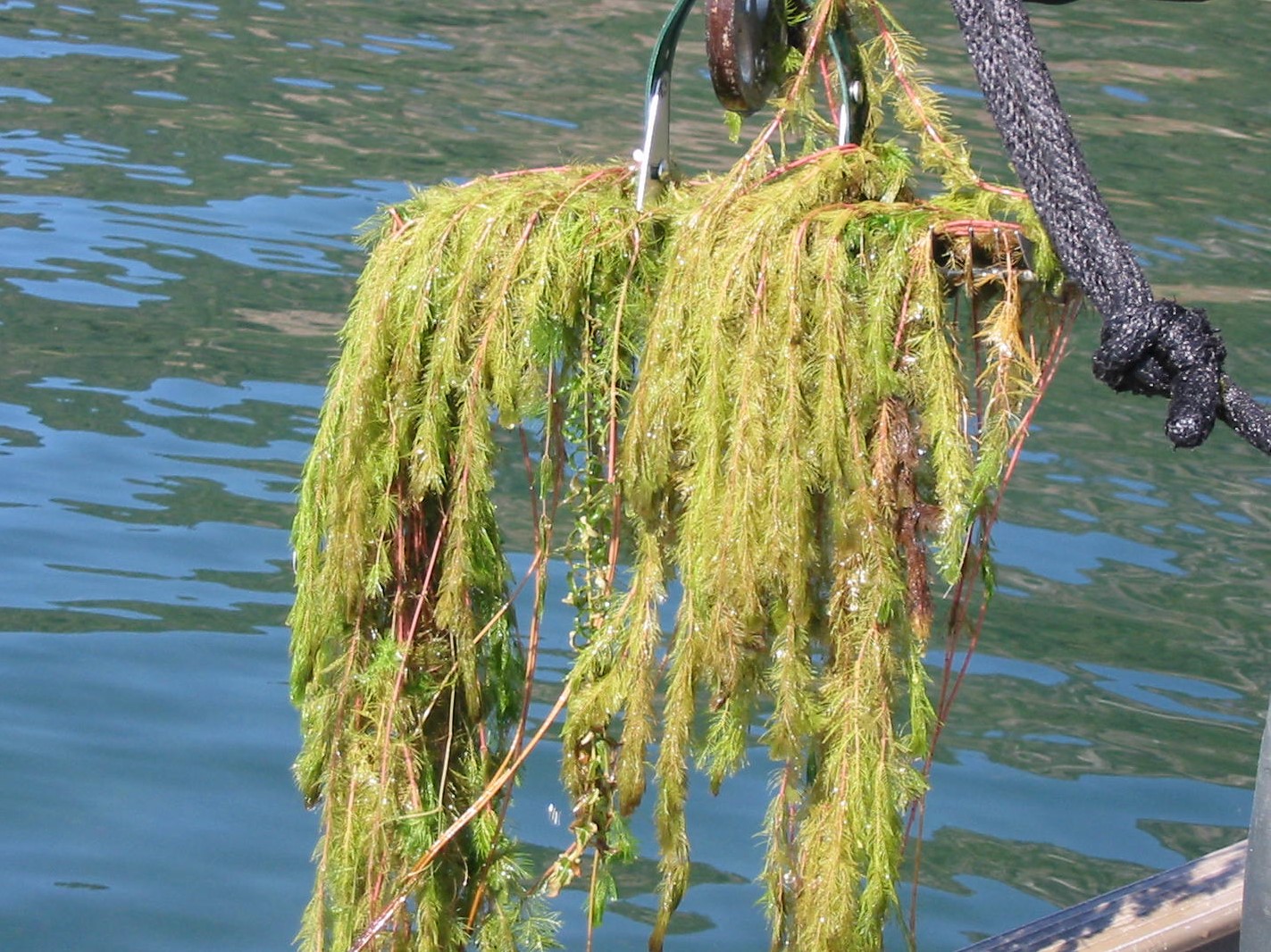
Myriophyllum spicatum Myriophyllum spicatum spike watermilfoil, Eurasian watermilfoilThe most widespread submerged invasive aquatic plant in California and a serious problem in Lake Tahoe. Stems are brittle and break easily, starting new infestations when spread by boats or water birds.
Invasive: Do Not Plant -
Myriophyllum aquaticum (watermilfoil)
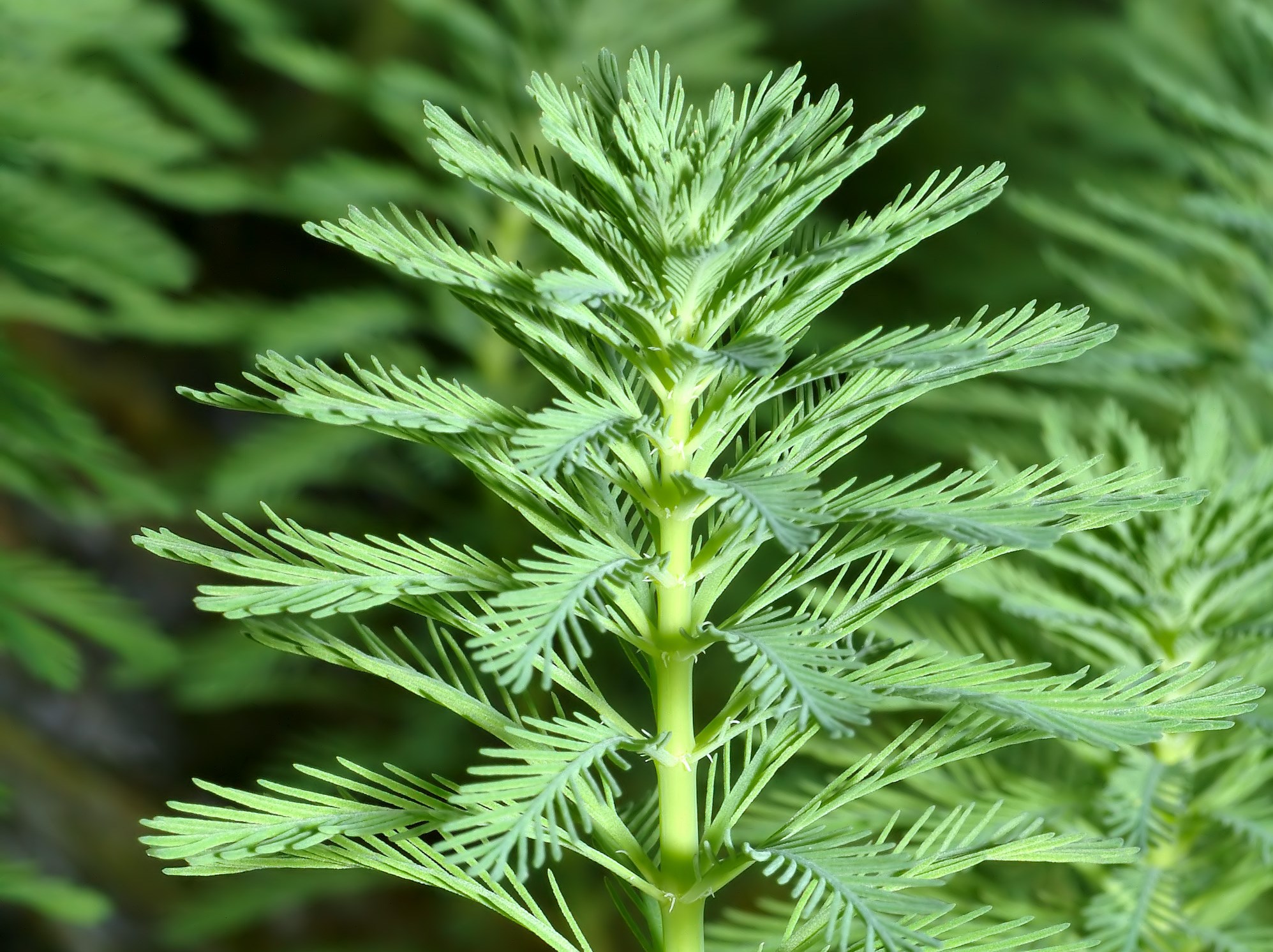
Myriophyllum aquaticum Myriophyllum aquaticum parrotfeather; Brazilian watermilfoil; parrotfeather watermilfoil; thread-of-life;Forms dense mats that impede water flow. Stems are brittle and break easily. Spread by boats or migrating water birds. Uncommon in California but has the potential to spread.
Invasive: Do Not Plant -
Arundo (aquatic)
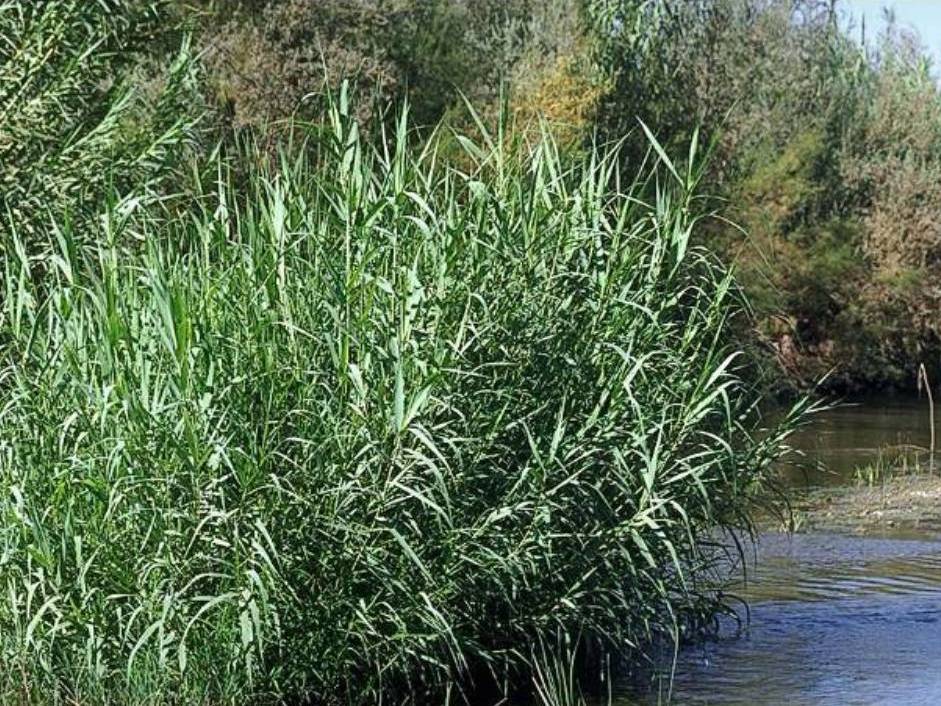
Arundo donax Arundo donax giant reedA serious problem in coastal streams. Dense growth damages habitat, while creating a fire and flood hazard. Variegated varieties are also problematic and are not recommended.
Invasive: Do Not Plant
Recommended Aquatic Plants
-
Sagittaria spp.
Sagittaria latifolia arrowhead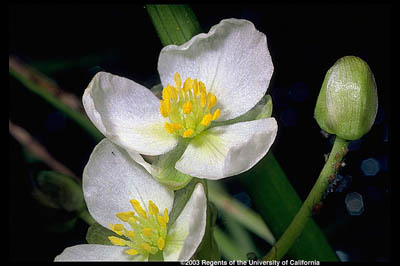
Sagittaria montevidensis Sagittaria montevidensis arrowheadSagittaria lancifolia white swan, red swanPond Margin or Bog . Striking arrow-shaped leaves and white flowers. Grows in moist soil or water 6 inches or more deep. S. latifolia grows 12 to 20 inches; S. montevidensis to 4 feet. Also try S. lancifolia (white swan or red swan) for a specimen plant with green or red stems and a 7-foot flower spike.
Sun:Water: -
Mimulus aquatics
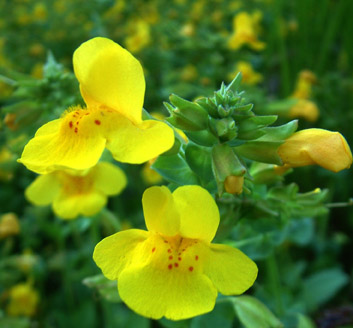
Mimulus guttatus Mimulus guttatus common yellow monkeyflowerPond Margin or Bog. Annual or perennial. Fills out a 4 feet x 4 feet space in spring and summer. May die back then return the next year. Yellow flowers with reddish spots resemble snapdragons. Hummingbirds like it; deer don't. Also try M. cardinalis for red flowers.
Sun:Water: -
Nuphar polysepalum
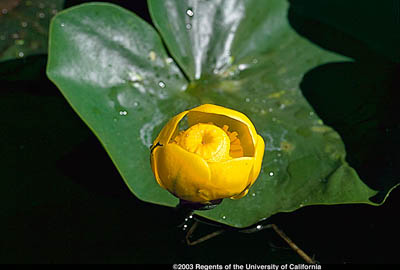
Nuphar polysepala Nuphar polysepala yellow pondlilyFloating or Rooted Emergent Plants. A native plant with a dramatic yellow flower and round leaves up to a foot in diameter. Foliage is submerged in winter and emerges in spring. May take more effort to find for sale.
Sun:Water: -
Polygonum amphibium
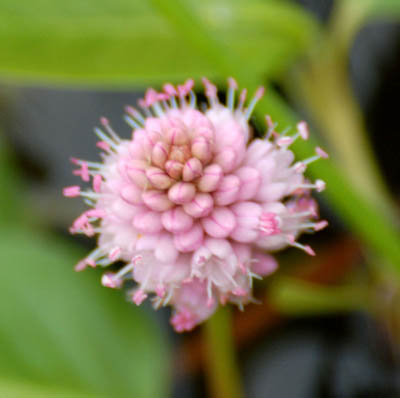
Polygonum amphibium var. stipulaceum Polygonum amphibium var. stipulaceum water smartweedSubmerged Plants. A versatile, creeping plant that does well in water depths ranging from moist soil to 4 feet of water over the crown. Long, narrow, floating leaves, and bright-pink flowers.
Sun:Water: -
Pontedaria cordata
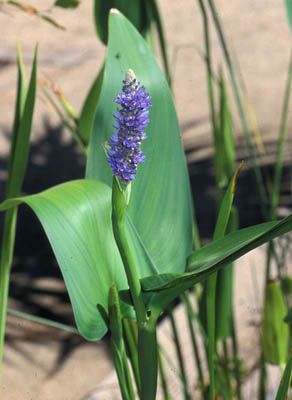
Pontedaria cordata Pontedaria cordata pickerel weedPond Margins. Heart-shaped leaves surround dramatic flower spikes. Excellent filtration ability. Place in containers in 1 foot of water. 3 to 4 feet tall, 2 to 2 1/2 feet wide.
Sun:Water: -
Iris ensata
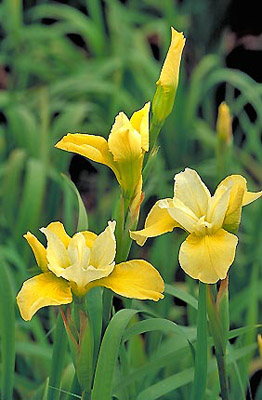
Iris ensata 'Variegata' Iris ensata 'Variegata' Japanese irisPond Margin or Bog
Sun:Water: -
Iris laevigata
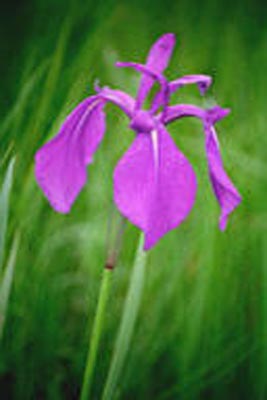
Iris laevigata and cultivars Iris laevigata and cultivars laevigata irisPond Margin or Bog. A true water-loving iris that will do well in 6 inches of water. Flowers in white, purple, lavender, and pink. Yellow-blooming varieties are available, but rare. Leaves to 18 inches tall.
Sun:Water: -
Iris missouriensis
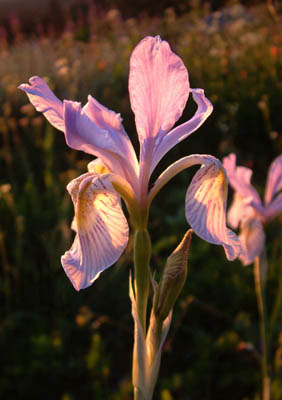
Iris missouriensis, I. longipetala Iris missouriensis, I. longipetala western blue flag irisPond Margins. A native iris with flowers ranging from white to blue to lavender. Leaves to 2 feet tall. Likes open, sunny, moist areas. Smaller in scale than yellowflag iris.
Sun:Water: -
Iris sibirica
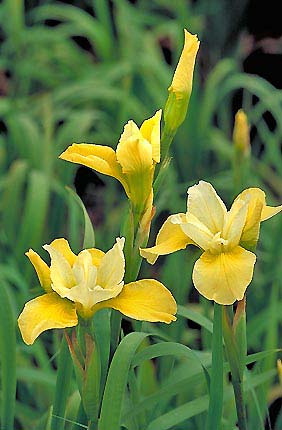
Iris sibirica and hybrids Iris sibirica and hybrids Siberian irisPond Margin or Bog.
Sun:Water: -
Juncus effusus
Juncus effusus common rushSun:Water: -
Ligularia wilsoniana
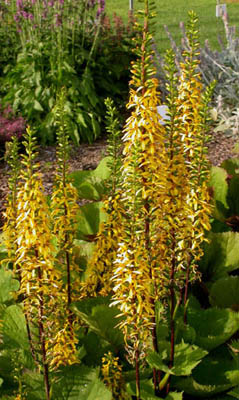
Ligularia wilsoniana Ligularia wilsoniana Wilson's ligulariaPond Margin or Bog. A tall and showy wetland perennial with spikes of bright yellow, daisy-like flowers. Stems grow to six feet tall.
Sun:Water: -
Lobelia spp
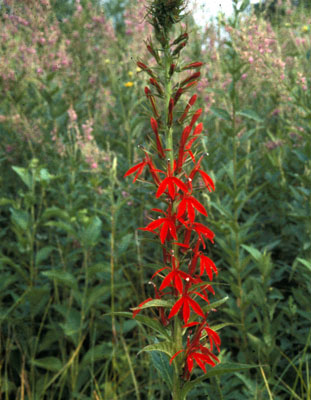
Lobelia cardinalis Lobelia cardinalis lobeliaLobelia fulgens lobeliaLobelia siphilica lobeliaPond Margin Plants. A spectacular blooming bog plant. Tubular flowers resemble honeysuckle or salvia and attract hummingbirds. L. cardinalis and L. fulgens to 6 feet with red flowers; L. siphilica grows 2 to 3 feet with blue flowers.
Sun:Water: -
Lysochiton americanum
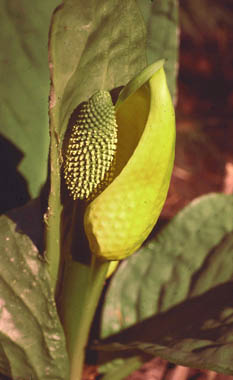
Lysochiton americanum Lysochiton americanum yellow skunk cabbagePond Margin or Bog
Sun:Water: -
Marsilea spp.
Marsilea spp. water cloverFloating or Rooted Emergent Plants.
Sun:Water: -
Elodea canadensis
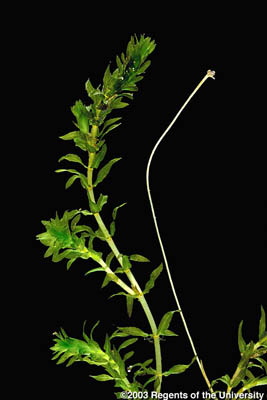
Elodea canadensis Elodea canadensis waterweedSubmerged Plants. One of the best oxygenating plants. Has dark green leaves and provides food and shelter for fish. Dies back in winter. Grows best in fine sand but may need to be controlled in small ponds. (Sometimes also sold under the name anacharis.)
Sun:Water: -
Brasenia schreberi
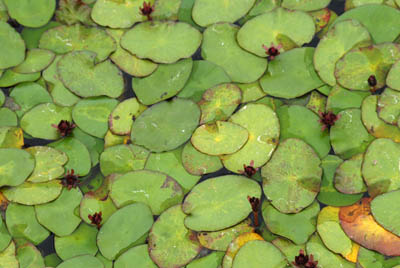
Brasenia schreberi Brasenia schreberi watershieldFloating or Rooted Emergent Plants.
Sun:Water: -
Ceratophyllum demersum
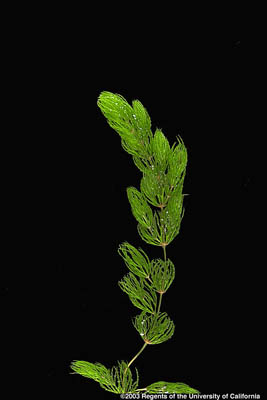
Ceratophyllum demersum Ceratophyllum demersum coontailSubmerged Plants. A rootless, deciduous perennial with slender stems and forked leaves. Tolerates shade and hard water. Good oxygenator.
Sun:Water: -
Chondropetalum aquatics
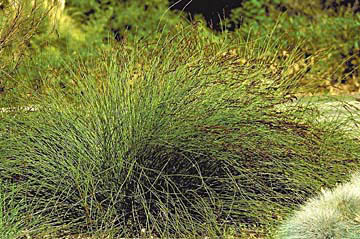
Chondropetalum tectorum Chondropetalum tectorum Cape thatching reedSun:Water: -
Cornus sericea
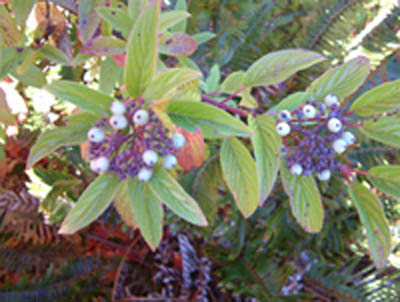
Cornus sericea Cornus sericea redtwig dogwood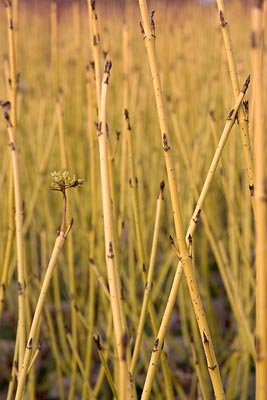
Cornus sericea 'Flaviramea' Cornus sericea 'Flaviramea' yellowtwig dogwoodPond Margin or Bog. Brilliant red or yellow foliage and colorful winter twigs. Provide good screens where water is present. to 8 feet tall and 10 feet wide. Cut roots to control spread.
Sun:Water: -
Alisma plantago-aquatica
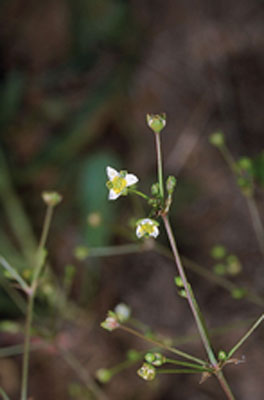
Alisma plantago-aquatica Alisma plantago-aquatica common waterplantainPond Margin or Bog. Herbaceous perennial with flowers heads arranged in whorls of white, pink, or lavender. Blooms form a pyramid-like shape. Suitable for medium to large ponds, but may overwhelm a small one. 12 to 36 inches tall and up to 18 inches spread.
Sun:Water: -
Aponogeton distachyon
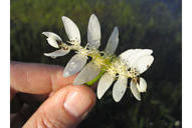
Aponogeton distachyon Aponogeton distachyon cape pondweedFloating or Rooted Emergent Plants. Crisp white flowers with a vanilla scent are held on the water surface. Prefers cool water. May overwhelm a small pond.
Sun:Water: -
Azolla filiculoides
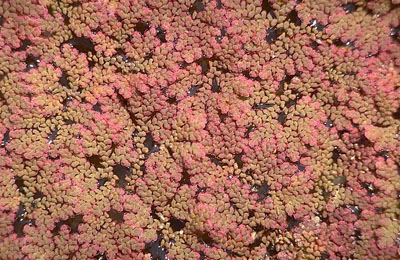
Azolla filiculoides Azolla filiculoides Pacific mosquito fern, fairy fernFloating or Rooted Emergent Plants. Tiny, free-floating perennial fern. Excellent pond cover for fish and other wildlife. Turns reddish-purple in the fall. To 1/2 inch high, with a spreading habit. May overwhelm a small pond.
Sun:Water: -
Baccharis salicifolia
Baccharis salicifolia mulefatPond Margin or Bog.
Sun:Water: -
Bambusa aquatics
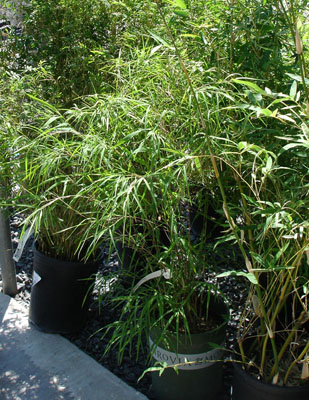
Bambusa multiplex 'Alphonso-Karr' Bambusa multiplex 'Alphonso-Karr' 'Alphonso-Karr' bamboo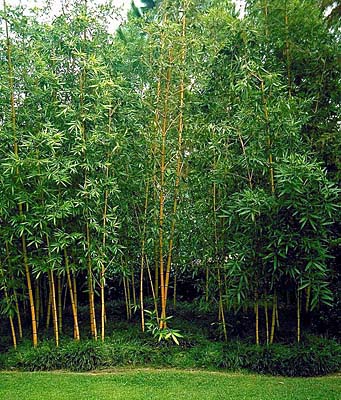
Bambusa multiplex 'Golden Goddess' Bambusa multiplex 'Golden Goddess' 'Golden Goddess' bamboo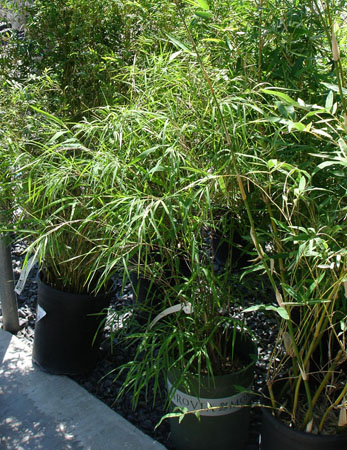
Bambusa multiplex Bambusa multiplex bamboo (clumping species only)Pond Margin or Bog. Useful as a hedge or screen. Rhizomes of clumping species stay close to the plant and will not invade surrounding soil. Height varies by cultivar, up to 35 feet. Do not plant running bamboos, which spread aggressively.
Sun:Water:
